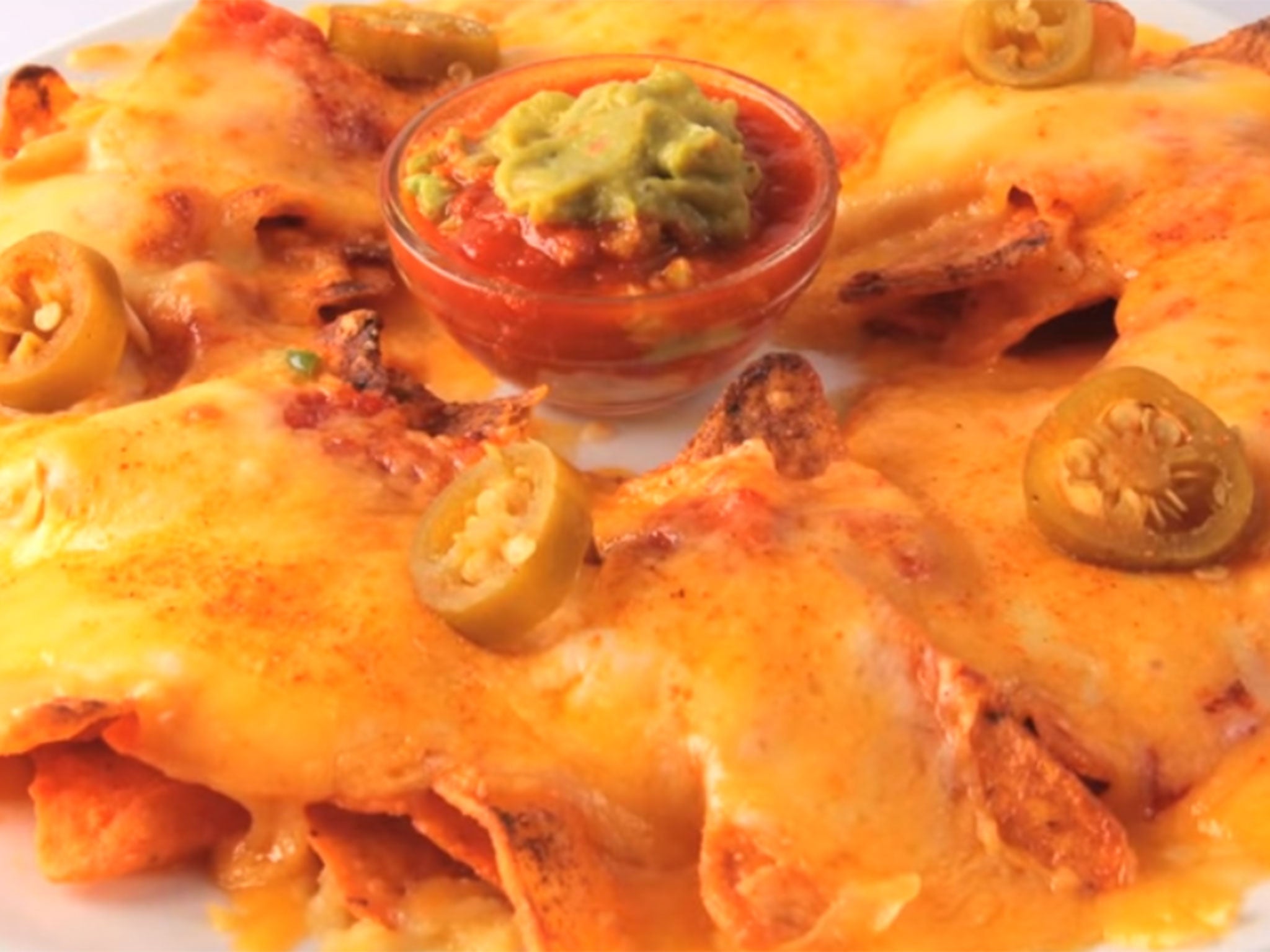Super Bowl food: A guide to making scientifically perfect nachos for the big game
Want the taste of cheddar but the texture of cheese sauce? Read on...

Your support helps us to tell the story
From reproductive rights to climate change to Big Tech, The Independent is on the ground when the story is developing. Whether it's investigating the financials of Elon Musk's pro-Trump PAC or producing our latest documentary, 'The A Word', which shines a light on the American women fighting for reproductive rights, we know how important it is to parse out the facts from the messaging.
At such a critical moment in US history, we need reporters on the ground. Your donation allows us to keep sending journalists to speak to both sides of the story.
The Independent is trusted by Americans across the entire political spectrum. And unlike many other quality news outlets, we choose not to lock Americans out of our reporting and analysis with paywalls. We believe quality journalism should be available to everyone, paid for by those who can afford it.
Your support makes all the difference.Even if you have zero interest in sportsball, Super Bowl Day is a great day. Everyone loves snacks, and the best snacks are the ones that are the worst for you, and there's no day so dedicated to the consumption of abundant unhealthy appetizers as this coming Sunday. Who needs a full meal of gluttony? Bah! Spend all day grazing and eat like five times as much.
But hosting a Super Bowl party can be a lot of pressure: you want your food to be perfect. We've got you. Better yet, science has got you.
Enter the American Chemical Society, which has given us a scientific guide to the ultimate nacho cheese. Here are some Super Bowl food tips to make your game day spread a winner.
1. Sodium citrate will give you next level cheese for your nachos.
If you just pop a pile of cheddar into the microwave, you're going to end up with a greasy pile of goo that hardens as soon as it cools down. That's fine if you're making yourself a plate of nachos to eat alone on the couch, but it's not ideal for a party: You want that smooth queso dip.
But that doesn't mean you should resign yourself to the gross jarred variety. By adding just a pinch of chemistry, you can get any cheese to melt into a perfectly smooth, delicious goo.
Here's the science: Cheese is made up of dairy proteins suspended in water, and it's all held together by proteins linked together by calcium molecules. To make cheese lose its shape and go all goopy, you need those proteins to break apart. Sodium citrate is an acid that will attract away those calcium molecules, leaving the proteins free to do their thing. You can probably find sodium citrate at a grocery, pharmacy, or online retailer. But if you can't, adding an acid like lemon juice is better than nothing.
2. Step up your guacamole game while you're at it.
ACS has us covered on guac science, too. You can use science-y tips to ripen stubborn avocados more quickly, and you can keep your pre-made dip from turning brown.
3. Think beer is safe from skunking in the winter? Think again.
Contrary to popular belief, beer doesn't “skunk” because it's been sitting out in the heat — it's sunlight that does it in. When hops are boiled down to make beer, they release chemical compounds called Iso-Alpha Acids. They're bitter on their own, but when exposed to sunlight they break down and interact with other molecules in the beer to produce a molecule that's almost identical to the one in a skunk's smelly spray. So don't keep your beer in direct sunlight, even if it's in a chilly spot.
Copyright: Washington Post
Join our commenting forum
Join thought-provoking conversations, follow other Independent readers and see their replies
Comments